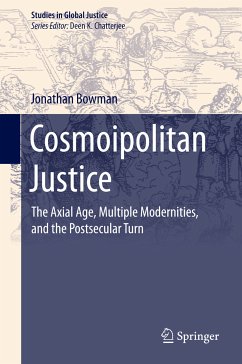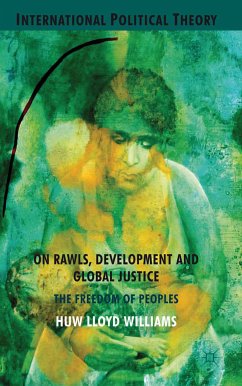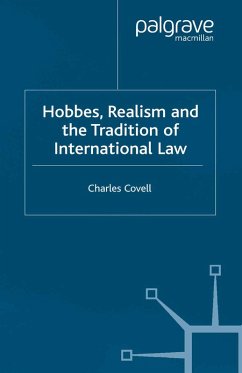In Jon Bowman's novel and important work, he rethinks the challenges of global justice. Bowman is not just concerned with global justice in the modern world, but with a genealogy that begins with a better understanding of the Axial age, one that is also the unique signature of cosmoi-political institutions. Arguing with depth and precision, Bowman challenges Kantian and Rawlsian universalism. His argument provides a new interpretation of cosmopolitan justice as he explores the deeper roots of cosmopolitan justice. James Bohman Saint Louis University Jon Bowman's Cosmoipolitan Justice is an important, innovative and timely work. Construing globality in terms of pervasive conditions of worldwide interdependence, Bowman advances a decidedly pluralistic account of cosmopolitanism, one uniquely shaped by recent theories of multiple modernities. His analysis is sustained by a highly informed appropriation of such diverse thinkers as Theodor Adorno, Abudullah An-Naim, Talad Asad, Schmuel Eisenstadt, Jürgen Habermas, Karl Jaspers, John Rawls, Amartya Sen, and Charles Taylor. One special feature is the book's synthesis of research on global governance with that on post-secularity and the place of religion in the public sphere. On this basis Bowman presents a distinctive account of the world's axial religions, one underwriting a multi-polar, intercultural global public realm able to address social, political, and economic issues confronting the global community today. This book should be of great interest to students and scholars in philosophy, political theory, international relations, sociology, and religious studies. Professor Andrew Buchwalter Department of Philosophy University of North Florida
Dieser Download kann aus rechtlichen Gründen nur mit Rechnungsadresse in A, B, BG, CY, CZ, D, DK, EW, E, FIN, F, GR, HR, H, IRL, I, LT, L, LR, M, NL, PL, P, R, S, SLO, SK ausgeliefert werden.









